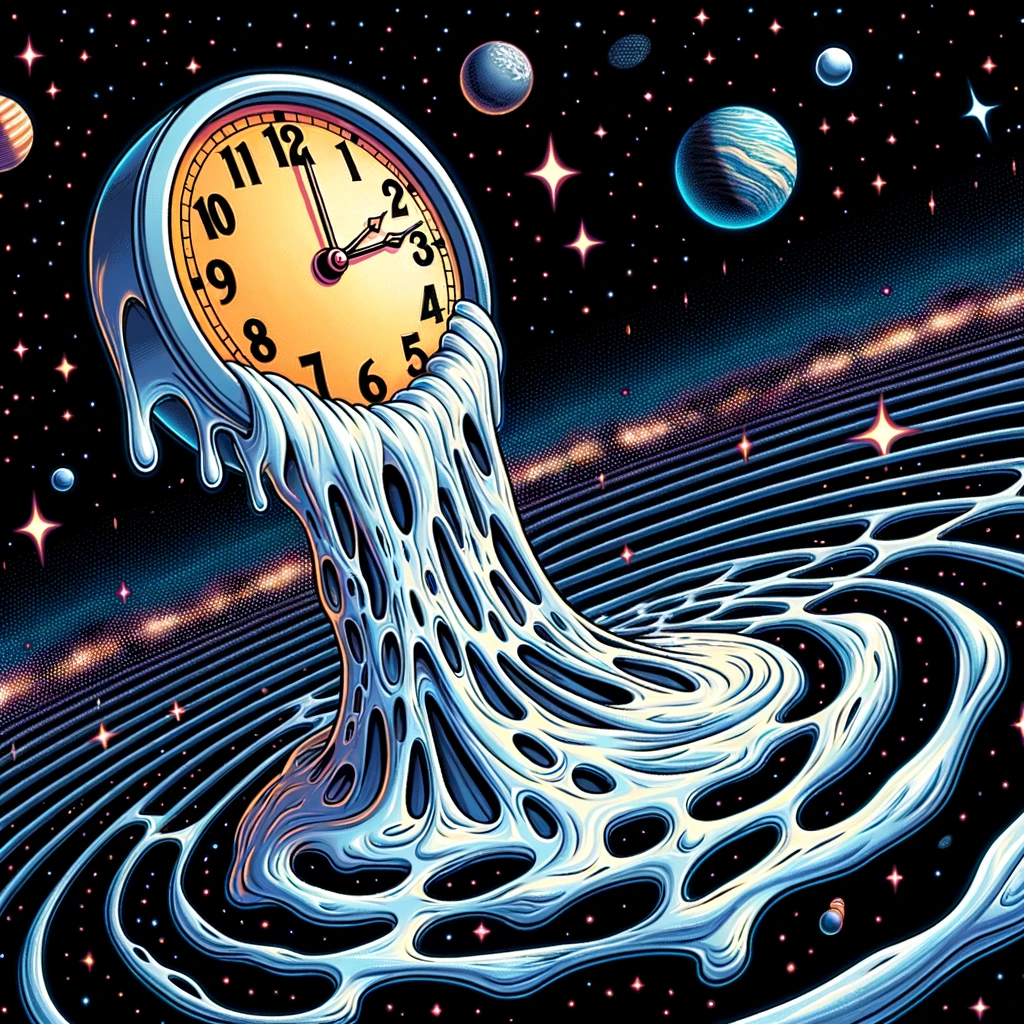Unraveling Time: A Journey Beyond Human Perception

The conventional understanding of time as a linear progression from past to present to future might just be a simplified representation of a more complex reality.
Physics, especially the theories emerging from the realms of relativity and quantum mechanics, proposes a narrative where time’s passage isn’t as straightforward as our experiences suggest. This piece delves into the juxtaposition of human time perception and the physical reality of time, exploring the profound implications of the physics that governs our universe.
Our Perception of Time
Humans have a linear perception of time, often visualized as an arrow moving from the past towards the future. This perception is largely influenced by our sensory experiences and the biological processes that govern our bodies. Our senses tell us that time flows; the past is fixed, the future is undetermined, and reality resides in the present.
Time in the Realm of Physics
Contrary to our sensory experiences, the physics of time introduces a more nuanced understanding. According to Einstein’s theory of relativity, rates of time run differently depending on relative motion, and space and time are merged into a unified entity known as spacetime. In classical physics, the concept of time is more absolute, yet, in the realm of relativistic and quantum physics, time’s nature becomes more complex and intertwined with the fabric of the universe.
The Illusion of Time
Theoretical physicist Carlo Rovelli, one of the architects of loop quantum gravity theory, posits that our naive perception of time’s flow doesn’t correspond to physical reality. Rovelli suggests that reality is a complex network of events onto which we project sequences of past, present, and future. He further discusses the idea of ‘physics without time’, where some equations of quantum gravity can be written without any reference to time at all, indicating that the essence of time emerges from quantum mechanics and thermodynamics.
Time Occurring All at Once: A Non-linear Perspective
The groundbreaking notion that time occurs all at once, transcending the linear progression from past to present to future, challenges our fundamental understanding. This theory suggests that events, rather than unfolding sequentially, exist concurrently in a timeless realm. The scientific underpinning of this theory can be traced to the domains of quantum mechanics and relativity, where the conventional notions of time begin to blur.
Empirical Indications of Time’s True Nature
Empirical investigations have started to hint at the non-linear nature of time. Experiments involving time perception have shown that sensitivity to time is non-linear in certain ranges, indicating a deviation from the conventional linear-timing hypothesis. Furthermore, novel experimental evidence for magnitude-sensitivity in decision-making suggests a non-linear time cost, extending the theoretical analysis of geometric time-discounting to ternary choices. These findings, along with network analysis of time series using novel approaches to determine entropy rates, are pushing the boundaries of our understanding of time’s true nature.
Implications of Time’s True Nature
The implications of a non-linear, non-absolute nature of time are profound. It challenges our fundamental understanding of reality, causality, and the nature of existence. The interconnectedness of time, consciousness, and the universe invites a realm of discussions that could significantly reshape our perception and understanding of reality.
Engaging with the Unknown
As we continue to grapple with the mysteries of time, the divergence between human perception and physical reality invites us to engage in a deeper exploration of the unknown. The quest for understanding time’s true nature not only reshapes our perception but also propels us forward in the journey of unraveling the mysteries that lie at the heart of our existence.
Perceptions vs. Reality
The dichotomy between how we perceive time and how it operates in the physical realm presents a riveting area of exploration. As science continues to peel back the layers of time’s true nature, we are ushered into a domain of thought that transcends our everyday experiences, encouraging a broader understanding and appreciation of the complex universe we inhabit.
Bibliography
- Davies, Paul. “Time’s Passage is Probably an Illusion.” Scientific American, October 24, 2014. https://www.scientificamerican.com/article/time-s-passage-is-probably-an-illusion.
- Emery, Nina, Ned Markosian, and Meghan Sullivan. “Time.” In The Stanford Encyclopedia of Philosophy (Winter 2020 Edition), edited by Edward N. Zalta. https://plato.stanford.edu/archives/win2020/entries/time/.
- Feehly, Conor. “Why Do Humans Perceive Time The Way We Do?” Discover Magazine, November 3, 2021. https://www.discovermagazine.com/the-sciences/why-do-humans-perceive-time-the-way-we-do.
- Gruber, Ronald P., Richard A. Block, and Carlos Montemayor. “Physical Time Within Human Time.” Frontiers in Psychology, Theoretical and Philosophical Psychology section, Volume 13, March 30, 2022. https://doi.org/10.3389/fpsyg.2022.718505.
- Jaffe, Andrew. “The illusion of time.” Nature, April 6, 2018. https://www.nature.com/articles/d41586-018-04558-7.

